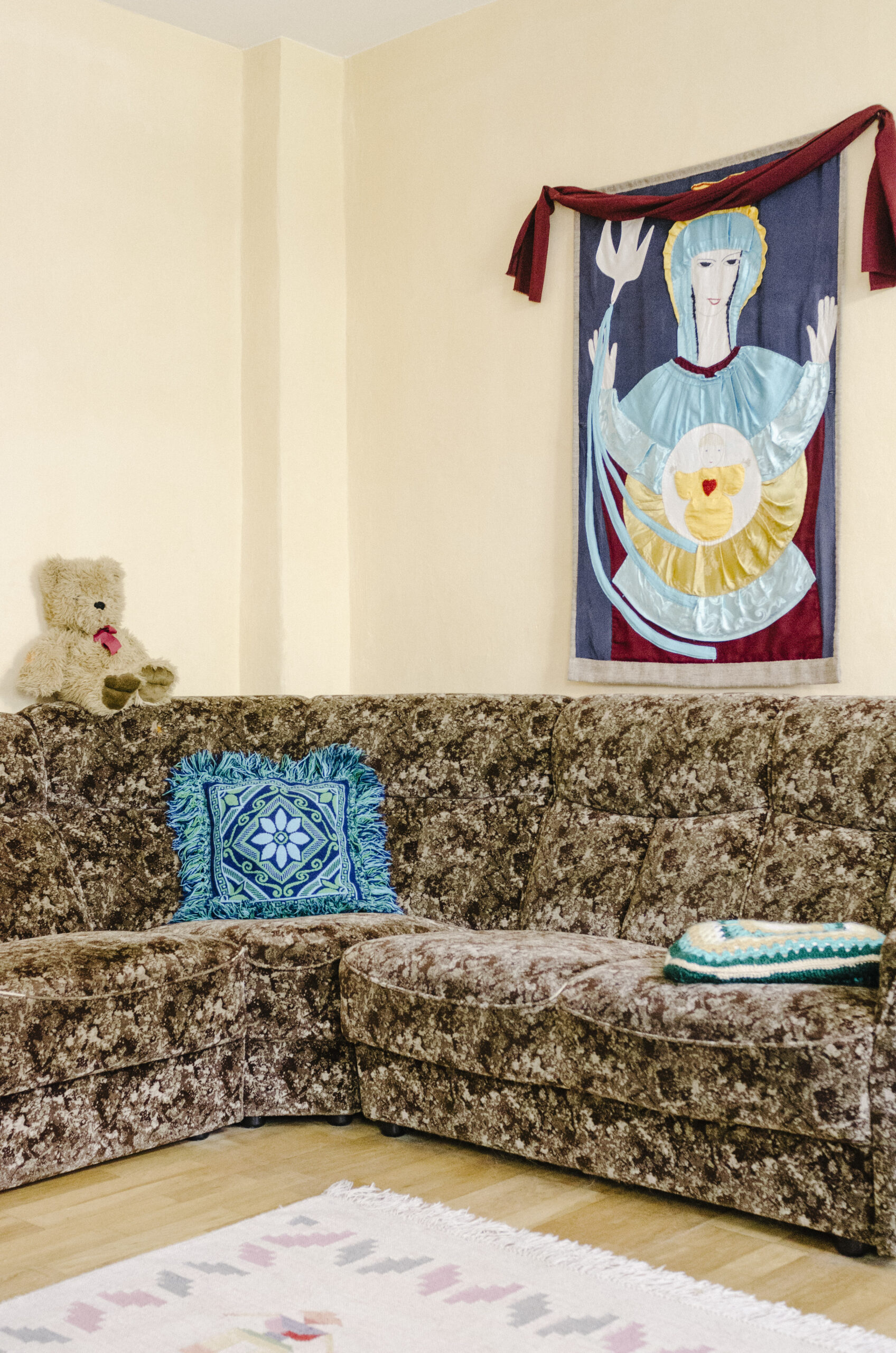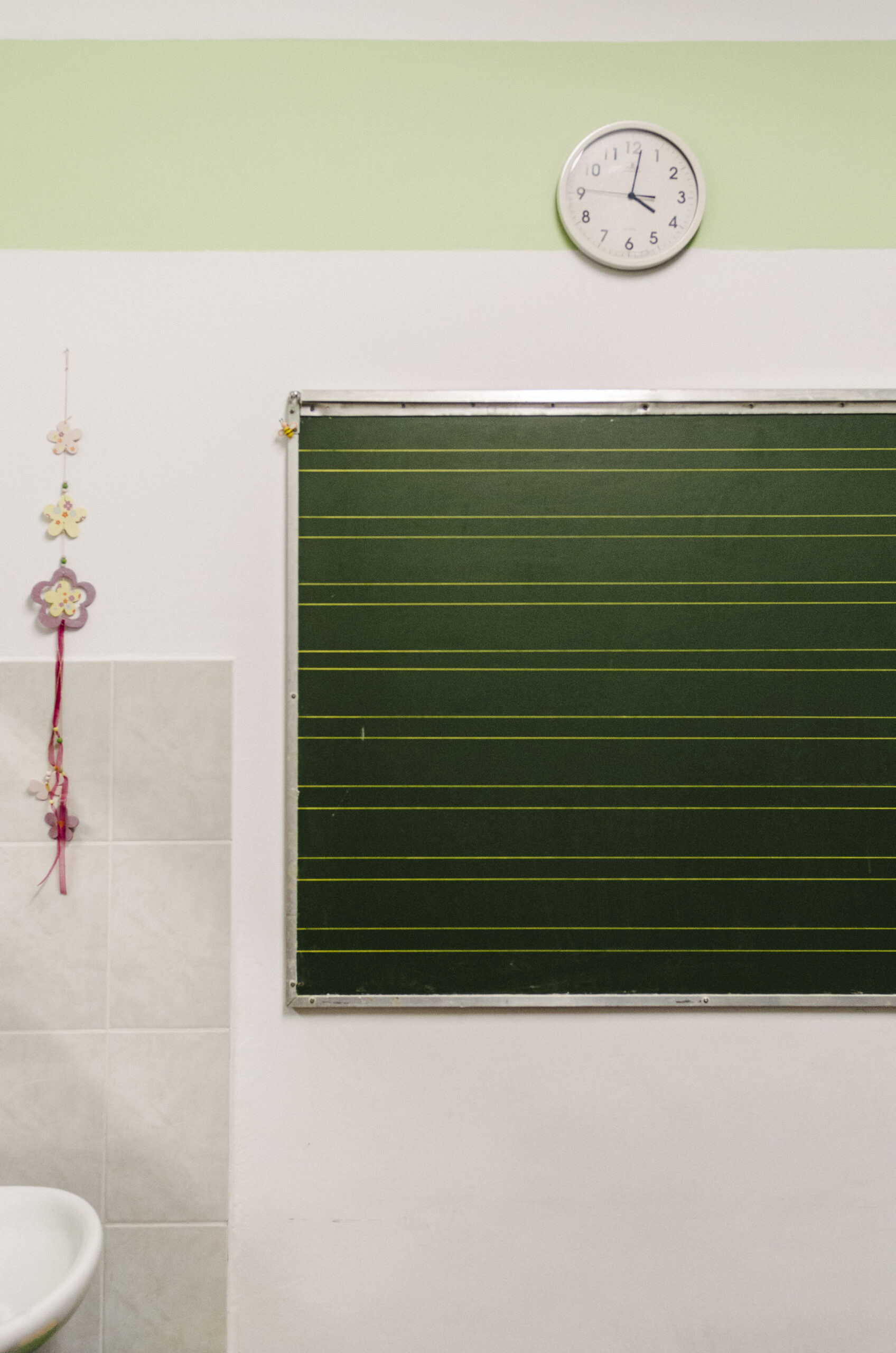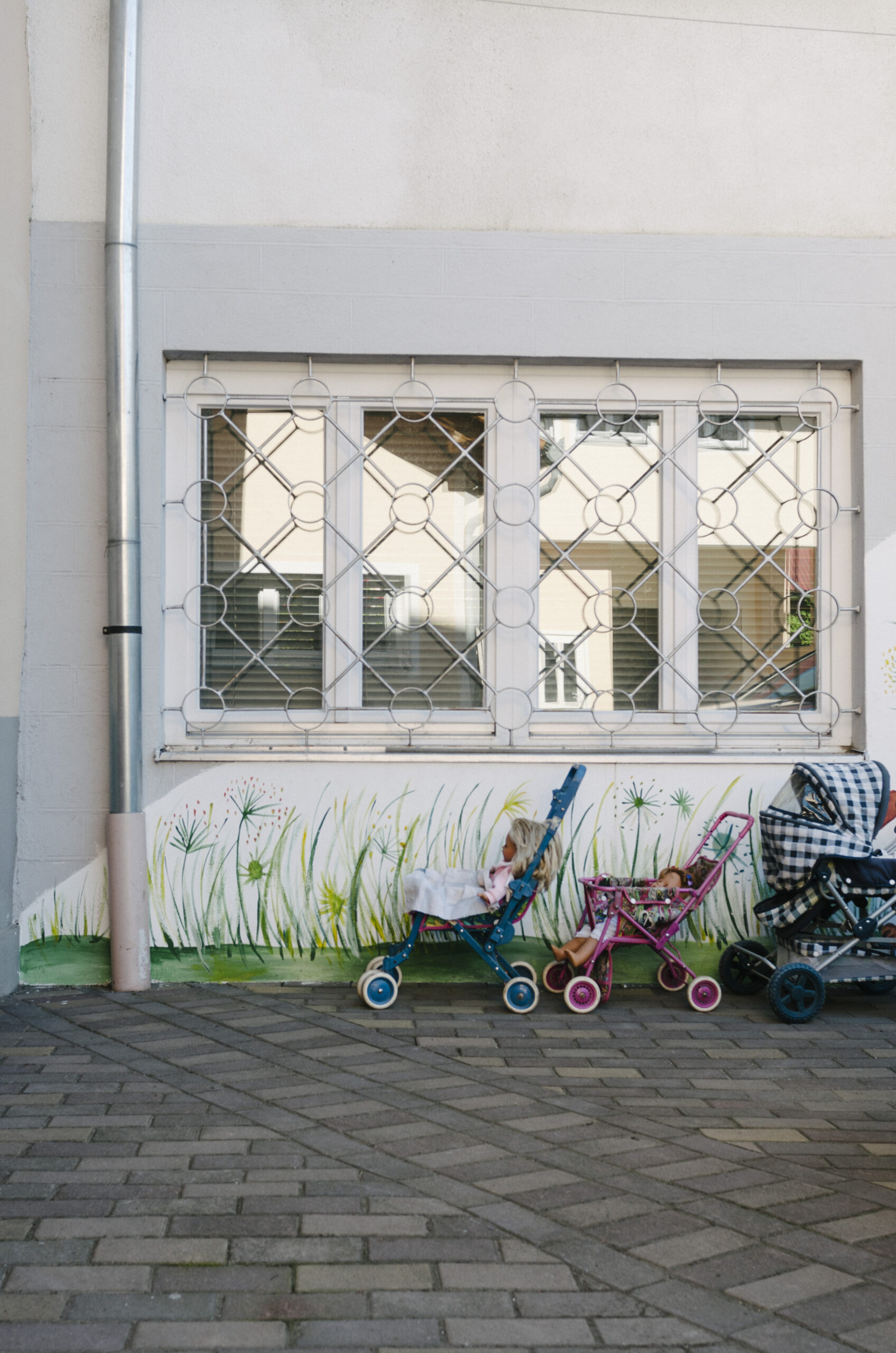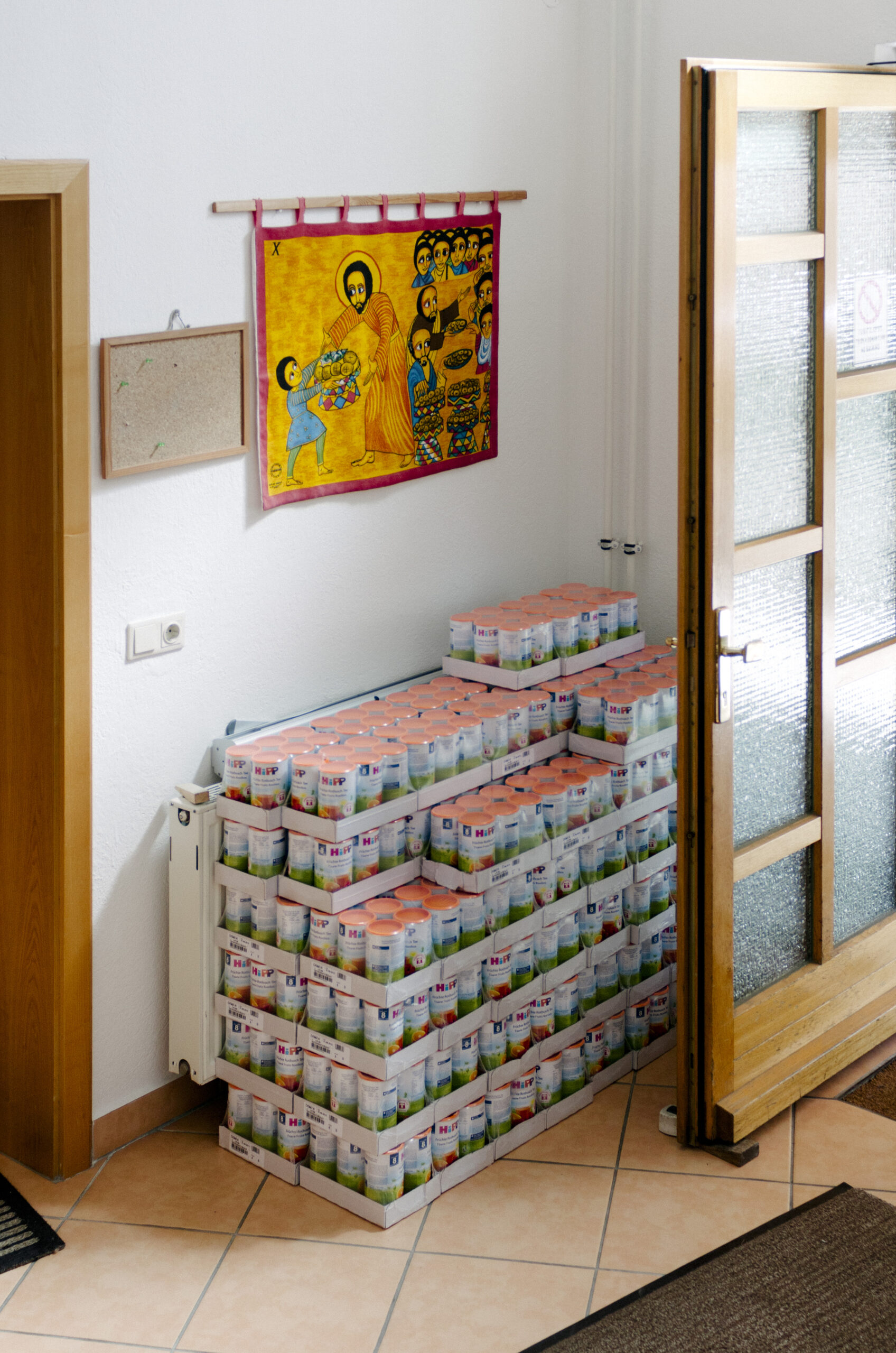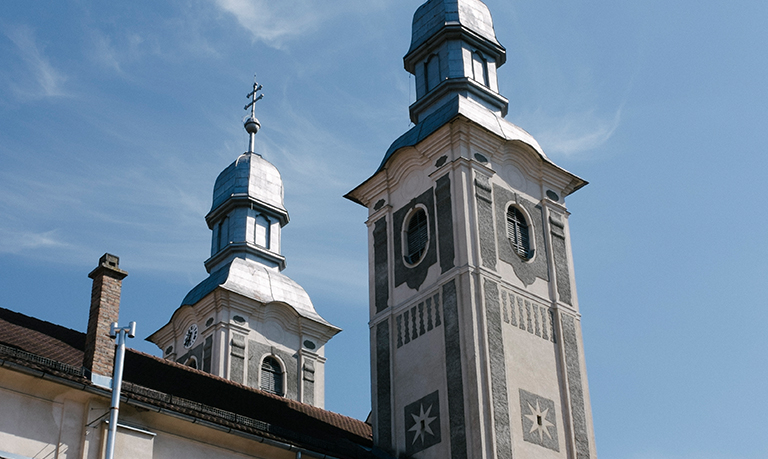The young woman was lucky. On Friday, she had knocked on the door with nothing but two plastic bags in her hands and the small child in her arms, evicted by the child’s father. She needed a place to sleep, a retreat for herself and the infant son, one year old, toothless laugh, light brown fuzz on his head. There was no family or relatives who could have taken in the 19-year-old with the dark hair, narrow shoulders and faded clothes; after all, she had been a displaced person before. Since the age of twelve, since her mother had abandoned her in a home and made off. This time she was lucky. The small parent-child room in the convent of the Mallersdorf Sisters in Szekelyudvarhely had not been occupied. She was allowed to stay, for the time being.

Sister Michaela’s bright eyes darken as she tells the story of the young woman who is now wiping chocolate from her child’s mouth with energetic tugs in the airy courtyard of the religious house. Next to her, two blond girls bounce on a seesaw, siblings; a few yards away, three boys in Bayern Munich jerseys from last season are setting up a big, new trampoline. They are all orphans. Their parents have abandoned them, usually at birth, sometimes years later. Like the young mother, they have found with Sister Michaela and the other nuns not only refuge, a bed, a shower and regular food, but also encouragement, respect and human warmth.
“We can’t always help,” Sister Michaela explains, shrugging her shoulders and pointing to the young mother. The nun, a small, round woman in a gray nurse’s uniform, her dark gray hair tamed under a dark cap, the furrows in her soft face not yet too deep, knows many, almost countless, of these life paths.
Mothers who are almost still children themselves, who are beaten, displaced and abandoned by parents or husbands – and who not infrequently later make the same decisions and abandon their own children.
Still, he said, it is easier today to find places of refuge for the abandoned and displaced. “There are more initiatives that take care of the women and children. We are now well connected. If we can’t place someone, we might be able to refer them.” Not to be compared with the situation in 1991, when the Iron Curtain fell and Michaela came to Romania.
Back then, dozens of children would have stood outside the doors of the church every day, begging, the nun says in a calm voice. Roma. It rolls softly when Michaela says Roma. The Upper Bavarian dialect of her native Deggendorf still makes itself felt, even though Michaela has lived for 24 years in Szeklerland, the area of Romania inhabited by the country’s Hungarian minority. At 42, she left Deggendorf, Bavaria, to set up the religious house of the Mallersdorf Sisters, a congregation of Franciscan nuns, after the end of communism meant the revival of the Catholic Church, whose activities had previously been severely restricted by the state. In 1864, the Mallersdorf Sisters settled for the first time in Sibiu, Romania. Meanwhile, the order is active in five places, running kindergartens, old people’s homes, schools. In Szekelyudvarhely, the sisters founded a kindergarten for members of the Roma in order to get the children off the streets.
“At the beginning, hardly anything changed,” recalls the 66-year-old, “everything was paralyzed. People hardly trusted each other anymore, she says; the compulsion for equality and the Ceaușescu dictatorship had left their mark not only on the streets, but also in the minds of the country. Only in recent years did progress begin to show. New houses would be built, old ones renovated and restored, there would be more stores, even tourists. “There are improvements,” notes Sister Michaela, “but many things are changing very slowly.” There are still Roma children who beg. There are still children who would first have to be fed, washed and deloused in kindergarten. Today, there are one hundred in total, who are cared for in four groups. In addition, there are practical support programs and a school for those who have outgrown kindergarten age. Here, the children are to develop self-confidence, a love of learning and curiosity, values that are not taught to them at home. “Many parents are illiterate, have never been to school themselves. For them, the children’s school attendance means nothing.”

Time and again, he said, children don’t show up because their parents see little point in schooling. “But we also see time and again parents who care very much that their children learn more than they do. They should learn to read, write and do math – everything they can’t do.”
While it used to be exclusively Roma children who had to be nurtured, today children from different groups visit the bright, colorful rooms, where they paint, do handicrafts or learn among mobiles and stuffed animals. However, the majority of the children still come from the most socially disadvantaged backgrounds. “Of course we notice that many parents would rather send their children to another kindergarten,” admits Sister Michaela almost apologetically, “but we don’t want to force anyone to send their child here.”
The baby milk packages are piled up in the hallway. Milupa, German label. You can feel the presence of the German motherhouse here in deepest Romania. Many of the donations that finance the convent come from Germany. At Christmas, shoeboxes full of gifts would arrive from Bavaria. The local sisters, mostly from Szekler, also learn German. Cooperation is nevertheless the top priority, emphasizes Sister Michaela several times, “Aid projects must always be rooted locally.” Otherwise, even the greatest commitment would be useless in the long term.
That the religious sister is pragmatic is also shown by her reason for moving to Romania: “A position became available, I applied and was accepted.” It just fell into place, much like her decision to join the order, which she made for herself as a child, quite unconsciously, as she says today. And yet, she pauses for a moment after the almost matter-of-fact review. “It’s a great gift that I was able to come here.”
A little boy throws himself at the nurse and squeezes his narrow shoulders under her arm. Lori is thirteen and has lived with the sisters since he was one year old. They had to raise the once-preemie with a bottle. His mother lived with Lori at the convent for some time, but she remarried – leaving the son with the nuns. The boy, with slanted dark almond eyes and a baggy gray Pokemon shirt, is exuberant, hyper, affectionate, scampering around and proudly displaying the contents of his nightstand. Soccer cards, toy cars, a poster of Lionel Messi, and a couple of car stickers that say Turbo. Turbo, that’s Lori, too, as he whizzes around the nuns.
Lori has found a home with the Mallersdorf sisters, as have two sisters whose mother left them with the nuns. The girls are so smart, Sister Michaela raves. And they have a role model: the eldest of the three has just finished school and wants to go to university, to study.


